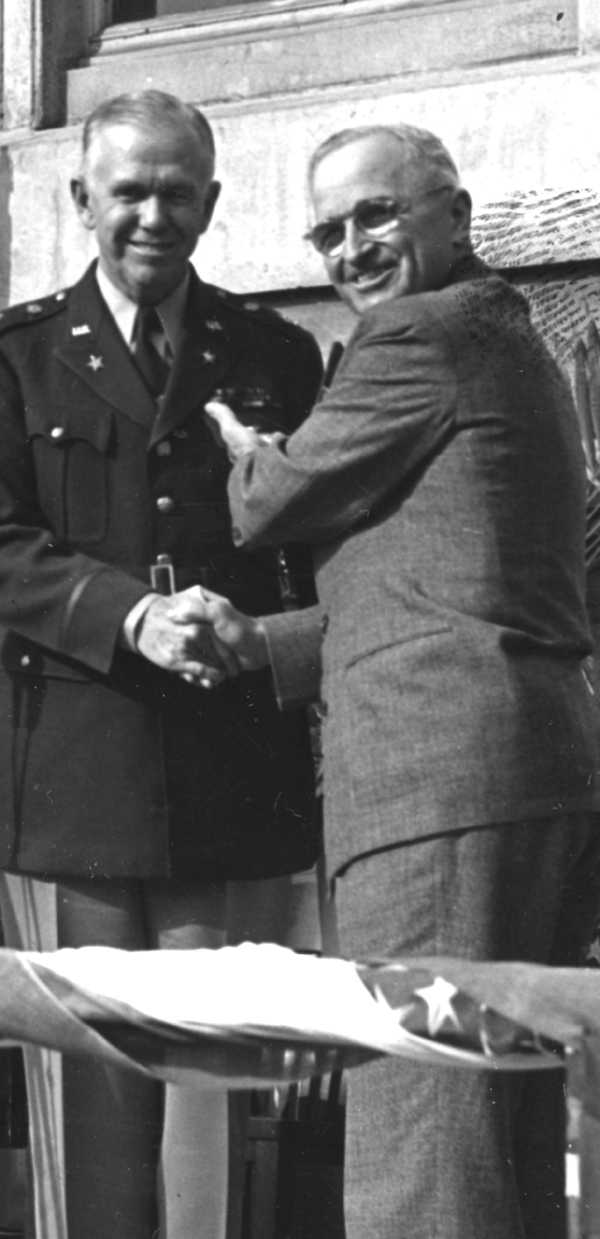After leading the United States Army to victory during World War II, General George C. Marshall submitted his request to resign as army chief of staff to President Harry S. Truman on November 18, 1945. Marshall had been sworn in as chief of staff more than 6 years earlier on September 1, 1939, the very same day that Germany invaded Poland and World War II began in Europe. Despite reaching the army’s mandatory retirement age of 64 on December 31, 1944, Marshall remained chief of staff through the end of the war at the request of President Roosevelt, with Congressional approval.
President Truman announced that he had accepted General Marshall’s resignation at a press conference on November 20th. As the news of Marshall’s resignation spread, letters and messages offering tributes soon began arriving at his office. The British Chiefs of Staff wrote, “As architect and builder of the finest and most powerful Army in American history, your name will be honored among those of the greatest soldiers of your own or any other country.”

The awarding of an oak leaf cluster, used to denote a subsequent award, for the Distinguished Service Medal to General Marshall on November 26th served as an unofficial retirement ceremony. The award citation prepared by President Truman asserted that, “In a war unparalleled in magnitude and horror, millions of Americans gave their country outstanding service. General of the Army George C. Marshall gave it victory.” The citation continued, “Statesman and soldier, he had courage, fortitude, and vision, and best of all rare self-effacement…His standards of character, conduct, and efficiency inspired the entire Army, the Nation and the world. To him, as much as to any individual, the United States owes its future.”
After Marshall received the award, he delivered a brief statement to the crowd assembled in the Pentagon courtyard. Marshall took this opportunity to recognize the soldiers who served under him. He remarked, “You were the greatest protective force this nation has ever known. In its direct hours you carried the might of American into action. You gave the United States its rightful prestige among nations.”
Marshall also spoke of the grave situation that existed throughout war-torn Europe. He stated, “Along with the great problem of maintaining the peace we must solve the problem of the pittance of food, of clothing and coal and homes. Neither of these problems can be solved alone. They are directly related, one to another.”
Despite Marshall’s accurate assessment of the situation in Europe, it would be more than a year before Marshall would return to addressing these problems as secretary of state. The day following his retirement ceremony at the Pentagon, Marshall received a call from President Truman asking him to go to China. Marshall replied, “Yes, Mr. President,” a response that Marshall would use on several more occasions when President Truman called on him to return to government service.
If you like reading our blogs, please support us by becoming a member of the Foundation or making a donation.
